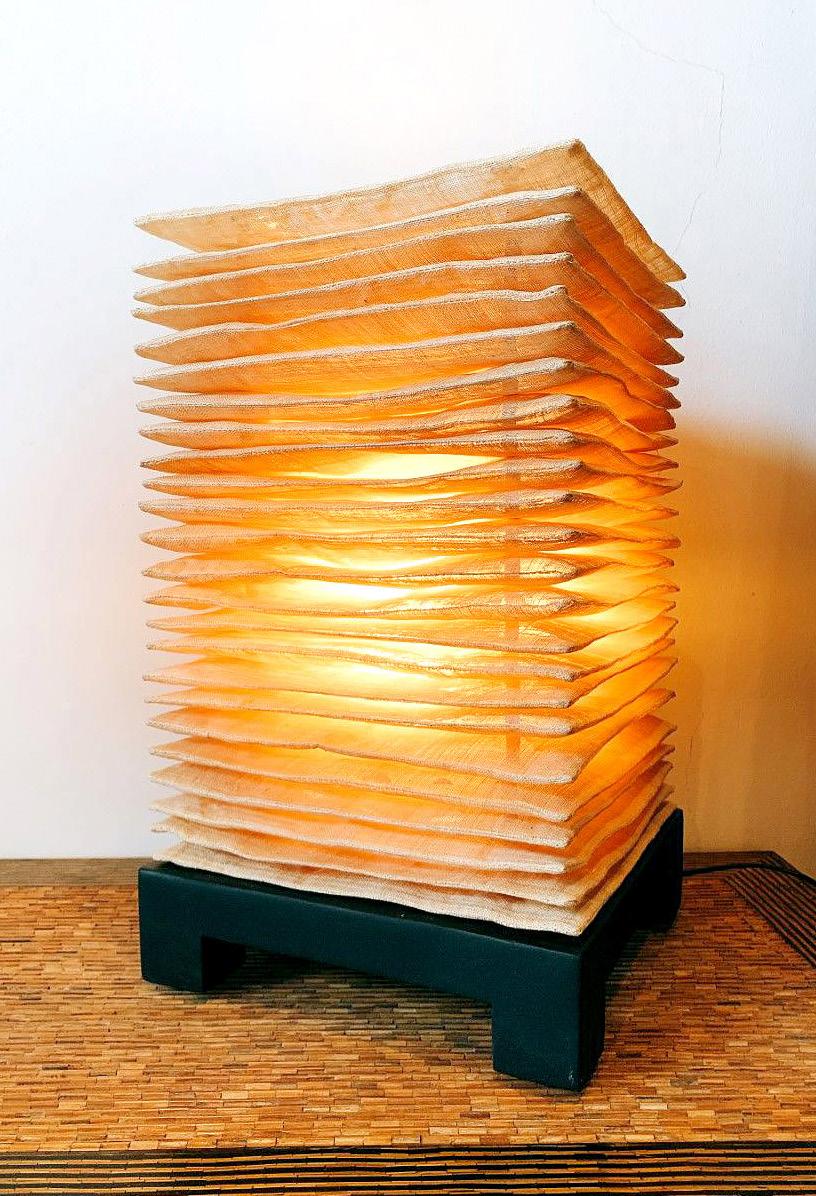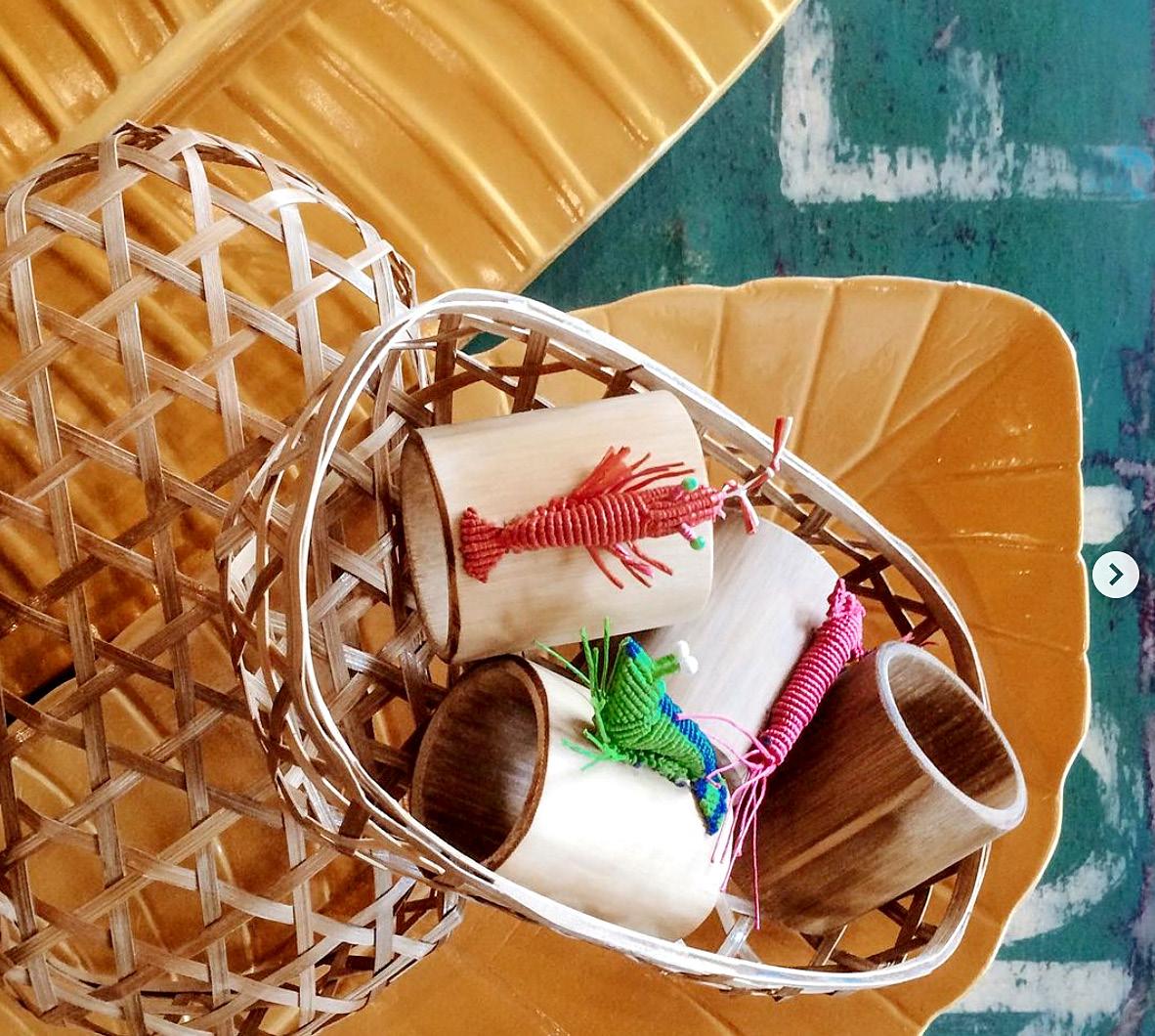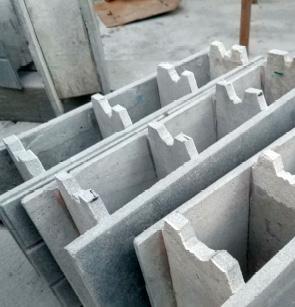
3 minute read
Design-Driven Businesses
he Design Center of the
TPhilippines spotlighted four design-driven businesses at a recent ASEAN Design Products Webinar hosted by the ASEAN-Japan Centre (AJC) and Japan Institute of Design Promotion (JDP).
The webinar highlighted the positive social impact of the designs and underlined how the designers applied uniqueness, creativity, and innovation into their products. At the same time,
Fillo Lamp it introduced the businesses and their products to the Japanese market as well as audiences beyond the local arena.
The featured designers were Dr. Ria Canlas of Po-Lite Technology, Kae Batiquin of HoliCOW PH, Willie Garcia of Junk Not!, and Kay Concenco of Lamana. They shared that their products are readily available, sustainable, have elevated or provided a solution to users’ daily lives, and are in line with the UN’s sustainable development goals. They also described the process of how these products came to life.
“Compassion is both branding and advocacy. This leads to a new norm of business social enterprise. It is because of equal dimension and empathy applied to the products, design, construction methodology, and operations. Every time I improve any aspect of my business operations, the more I manifest compassion.”, Dr. Ria Canlas of Po Lite Technology on her process as a designer-entrepreneur explains.
For Kae Batiquin of HOLICOW, her process involves acknowledging the importance of the life cycle of materials.
“By acknowledging the new normal and by transforming waste to a resource, and by understanding that design is a tool, we want to show that even waste material can be treated as natural material, and we have closed the loop. This is the responsibility
LAB’AS Table Napkin Rings Set

Prefabricated EcoCouture Panel System Building Materials

Sea Glass Lamp

of design. This what we in HOLICOW feel like when we have partners that come in with us; we tell them that we can do collections one at a time so that we are able to close the loop and do upcycling as the main design point,” she says.
In addition to learning about the Japanese consumer preferences and behavior, the webinar was an opportunity for designer-entrepreneurs to understand how good design can impact the fulfillment of their business goals and objectives and, ultimately, give them new insights and better perspective into the movement of trends and businesses in the global market.
“While the pandemic has disrupted the world order and put our global priorities to task, it has allowed all of us to recalibrate our lives towards life’s essentials. The Design Center is a firm believer that Filipino brands and innovators can be the catalyst of change by being pioneers of sustainable businesses that truly speak of compassion not only for their consumers but also for the future that each and every one of us aspires to have,” Design Center executive director Rhea Matute shares.
The ASEAN Design Products Webinar is part of the bigger collaboration agenda strengthened through a Memorandum of Understanding last March 2020 between Design Center, AJC, and JDP. It aligns the Good Design Award Philippines with Japan’s prestigious Good Design Award or GMark and their goal of supporting and establishing respective national good design award systems in 6 ASEAN States: Brunei Darussalam, Cambodia, Laos, Malaysia, Myanmar, and the Philippines.
Looking ahead, the webinar series will introduce national design centers from participating ASEAN member states who will be given the same opportunity to showcase and take the lead in establishing their very own design identity and standards based on their national culture, craftsmanship, and innovations.

PO LITE TECHNOLOGY, INC.










